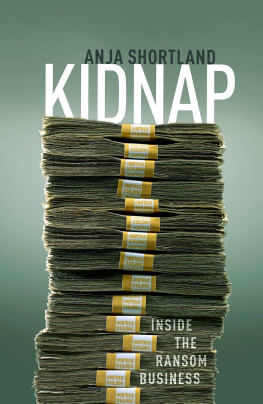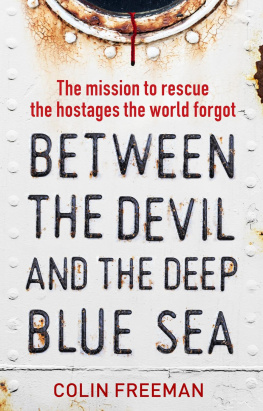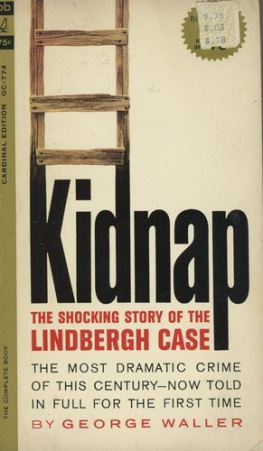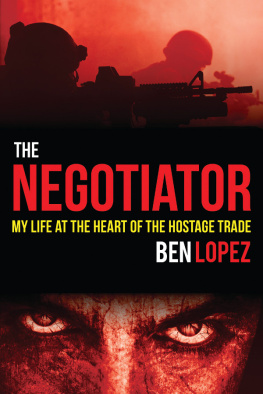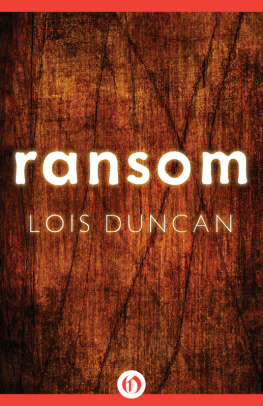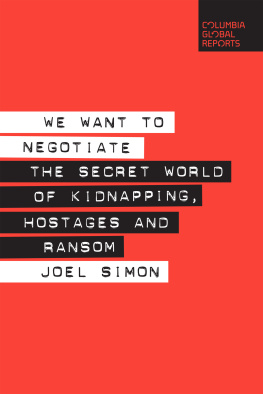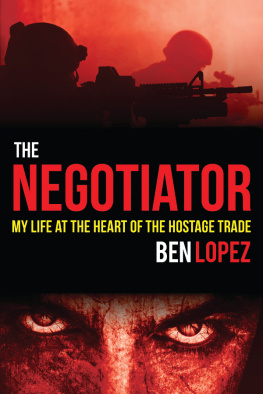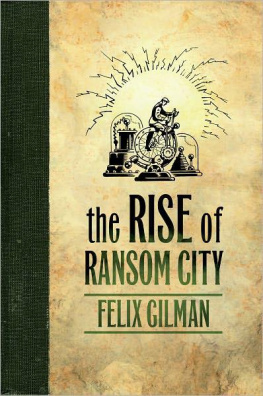Oxford University Press is a department of the University of Oxford. It furthers the Universitys objective of excellence in research, scholarship, and education by publishing worldwide. Oxford is a registered trade mark of Oxford University Press in the UK and in certain other countries
All rights reserved. No part of this publication may be reproduced, stored in a retrieval system, or transmitted, in any form or by any means, without the prior permission in writing of Oxford University Press, or as expressly permitted by law, by licence or under terms agreed with the appropriate reprographics rights organization. Enquiries concerning reproduction outside the scope of the above should be sent to the Rights Department, Oxford University Press, at the address above
You must not circulate this work in any other form and you must impose this same condition on any acquirer
Published in the United States of America by Oxford University Press 198 Madison Avenue, New York, NY 10016, United States of America
Printed and bound in Great Britain by Clays Ltd, Elcograf S.p.A.
Links to third party websites are provided by Oxford in good faith and for information only. Oxford disclaims any responsibility for the materials contained in any third party website referenced in this work.
Acknowledgements
This book is based on many long conversations with a wide range of industry insiders. I am extremely grateful that you decided to trust me, told me about your world, and allowed me to share some of your experiences. It has been fascinating to watch and listen to you solving some of the trickiest trade problems in the world to bring kidnap victims safely back to their families and friends. You chose to remain anonymous, but I hope this book does justice to the amazing work you do.
I greatly appreciate the support of my admired colleagues. Conversations with Paul Aligica, Lee Benham, Lisa Bernstein, Peter Boettke, David Fielding, Diego Gambetta, Gillian Hadfield, Jeffrey Howard, Tom Keatinge, Peter Leeson, Mike Munger, Mark Pennington, Todd Sandler, and Edward Stringham convinced me that I had stumbled upon something exciting and helped to direct and sharpen my analysis. My mentor Ben Bowling knew that I wanted to write this book before I did. David Skarbek and Federico Varese lent support and gave advice throughout. Part is largely based on my joint work with Federico. Thank you, David, for your thoughtful comments on the first draft of this bookI didnt enjoy rewriting it, but I am glad I did.
My editor Adam Swallow has kept me on track with his positivity, mischievous sense of humour, gentle chiding, and excellent coffee. Thank you for making it such fun to write my first book. Sir Nicholas Bayne, Liam Morrissey, and a further (anonymous) referee read and commented in detail on the entire book, while Per Gullestrup, Ali M. Ali, and others helped with specific chapters. Matthias Baumann drew the maps for . Thank you for your wisdom, guidance, and for helping me to communicate better.
It takes a village to raise a child. My village has raised a book as well as two beautiful kids. I thank my friends, family, neighbours, co-authors, and colleagues for their patience and support as I focused single-mindedly on completing my first book. J. S. Bach and W. A. Mozart kept me (more or less) sane: thank you for the music, Christine Williams, Roland Rosner, and Camilla Darling. I am most grateful for the enthusiastic support of my children, who were only too pleased to tell their impressed classmates: Daddy (an Egyptologist) studies mummiesbut our mummy is a pirate! My parents and father-in-law were always ready to drop anything to hold the fort during research trips, conferences, or simply for much-needed downtime. Thank you.
It is both my nature and my job to be puzzled and to puzzle things out. I have seen and heard some strange, some disturbing, and many wonderful things. I thank my husband for his encouragement and practical assistance in my academic adventures. This book is dedicated to him.
Contents
Using jargon-free prose and impeccable analytical clarity this book portrays the business logic of the protagonists of kidnapthe kidnappers, their protectors, the hostages, and the insurersvividly illustrating it with many real-life cases replete with unexpected twists. Whether you are afraid of being kidnapped, eager to sell insurance, working hard to deter or catch kidnappers, or even just a social scientist eager to understand what makes kidnapping fail or thrive, this treatise, the first of its kind, will prove supremely enlightening.
Diego Gambetta
European University Institute and Oxford University.
Author of Engineers of Jihad, Codes of the Underworld and The Sicilian Mafia
What do you get when you combine the intrigue of the international kidnap-for-ransom business and solid nuanced economic theory? A great read and deep insights into how extra-legal markets really work.
Gillian Hadfield
University of Toronto
The business and economic dynamics of kidnap-for-ransom are highly complex, but in this new bookunique in this fieldShortland provides a masterful deconstruction and explanation of the trickiest trade. Shortland lifts the veil on a highly complex world, revealing the ecosystem of motivations and competing interests that allow an orderly market to operate in the most disorderly of environments.
Tom Keatinge
Director, Centre for Financial Crime & Security Studies, RUSI
Negotiation with criminals; a fortune at stake; emotions on the redline; lives hanging in the balance. What couldnt go wrong with kidnap-for-ransom? In this gripping new book, Anja Shortland analyses the ransom business from the inside. Her discovery is startling and brilliant: a self-governing marketplace of cooperation and order. Outstanding and original, Kidnap is mandatory reading for students of (anti-)social order.
Peter T. Leeson
George Mason University.
Author of The Invisible Hook: The Hidden Economics of Pirates and WTF?! An Economic Tour of the Weird
Rigorous analysis which is needed not just in this field but also in cyber, art crime and all those areas where the lack of international policing leaves the private sector to find its own solutions Meticulous research and clear conclusions of great importance to policy makers and those engaged in the prevention and mitigation of ransom attacks.
Julian Radcliffe OBE
Founding Director of Control Risks and Chairman of the Art Loss Register
This outstanding book enlightens readers on the modern workings of the ransom business with its stakeholdersthe kidnappers, the insurers, the governments, and the victims and their families. The author applies economic reasoning in a clear, clever, and insightful manner. In doing so she puts a perplexing problem into sharp focus. This must-read book addresses a crucial political problem in an engaging way.
Todd Sandler
University of Texas at Dallas.
Author of Terrorism: What Everyone Needs to Know

